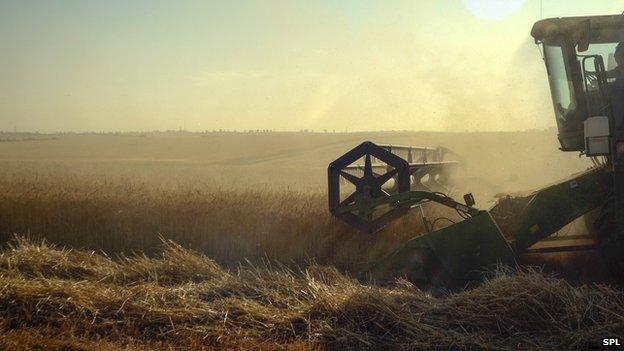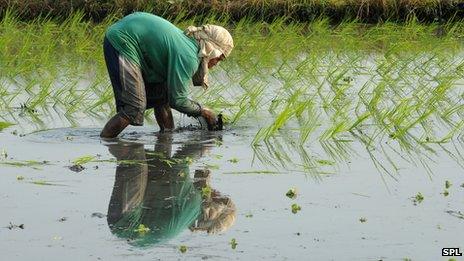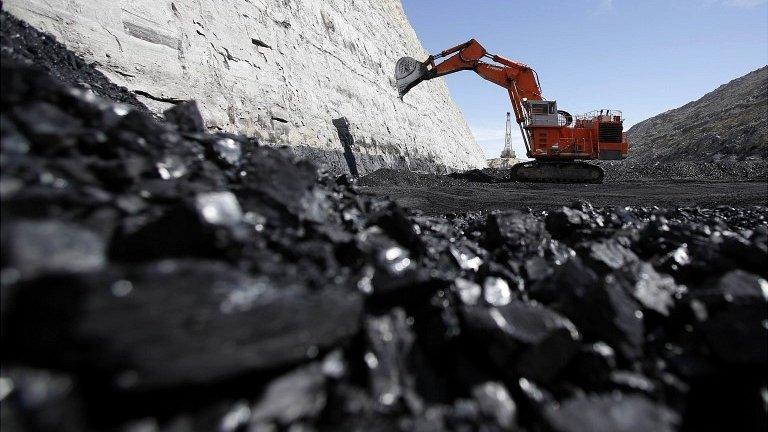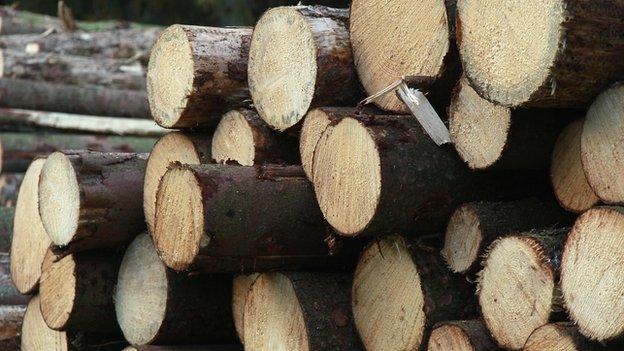CO2 'significantly reduces' nutrients in major food crops
- Published

The nutrient content of major crops like wheat is likely to be reduced by rising temperatures
Rising levels of CO2 around the world will significantly impact the nutrient content of crops according to a new study.
Experiments show levels of zinc, iron and protein are likely to be reduced by up to 10% in wheat and rice by 2050.
The scientists say this could have health implications for billions of people, especially in the developing world.
The report has been published, external in the journal Nature.
Researchers have struggled over the past two decades to design large scale field trials to accurately model the impacts of increased CO2 levels on the nutritional makeup of crops.
Now an international team has put together a global analysis based on experiments in Japan, Australia and the US.
They've grown 41 different varieties of grains and legumes in open fields, with levels of carbon dioxide expected in the middle of this century.
"It is possibly the most significant health threat that has been documented for climate change," said lead author Dr Samuel Myers from the Harvard School of Public Health.
"We found significant reductions in iron, zinc and protein in rice and wheat, and we found significant reductions in iron and zinc in soybeans and field peas as well," he said.
The researchers estimate that these reductions of up to 10% could have major health implications for millions of people around the world.
Around a third of the global population are already suffering from iron and zinc shortages, leading to some 63 million life years being lost annually as a result.
"We found that close to 2bn people are getting at least 70% of their iron and zinc from these grains and legumes. So reductions in those crops are potentially quite worrisome in terms of increasing those deficiencies," said Dr Myers.
Eating more food to make up for these reductions in nutrients would not be a good solution, he said.
"The problem with that is that if you eat 5-10% more calories every day it would be a matter of months before we were morbidly obese and bumping into issues around metabolic diseases."

Varieties of rice reacted differently to CO2, giving hope that new breeds can be developed that don't lose their nutrition
The scientists are unsure of the mechanism through which levels of carbon dioxide of around 550 parts per million limit crop nutrition.
It had been thought that crops would substitute carbohydrates for nutrients as the gas increased. But the new research was inconsistent on this point.
Breeding difficulties
The authors did find that within some species such as rice, there are considerable differences in response to CO2 which gives them hope to overcome these reductions.
"What we speculate is that this could produce a basis for breeding programmes to produce rice that was less sensitive to CO2. We are not proving that this is possible but we are just saying there may be a genetic basis for doing it," said Dr Myers.
"These breeding programmes all sound good on paper but you can produce a cultivar and the yield is reduced or it just doesn't taste good. It's complicated."
The impact of carbon on nutrient levels is another blow to global food production. According to the Intergovernmental Panel on Climate Change (IPCC), crop yields are also set to suffer as a result of rising temperatures.
Their recent summary on the impacts of global warming, external stated that the production of maize, wheat and rice will go down over the course of this century.
Follow Matt on Twitter, external.
- Published13 April 2014

- Published26 March 2014

- Published12 April 2014
